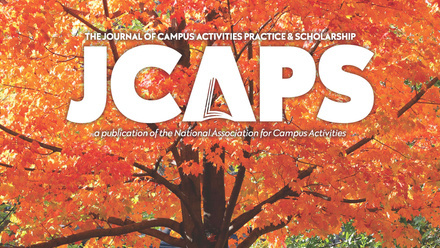Surviving the Dissertation Process
Writing a dissertation differs from other forms of writing, even other forms of academic writing. It demands meticulous attention to detail, rigorous research, and the ability to articulate complex ideas concisely. Even once you understand how to organize and synthesize your writing, the dissertation can still feel overwhelming. As you embark on this journey, employing effective strategies can significantly contribute to your success and help you navigate the challenges of the dissertation process.
Bad first drafts
One of my favorite writing tips comes from Anne Lamott. In her book, Bird by Bird she gives us permission to have a bad first draft (Lamott, 1994). How many times have you stared at a blank page because you couldn’t figure out whereto start or knew you weren’t going to write down the perfect sentence? Sometimes we just need to put words on the page to figure out the best ways to formulate a sentence or move the conversation forward.
Don’t delete anything
Probably the best piece of writing advice I received was to never delete anything. I kept a separate document on my desktop labeled “Cut Sentences” and any time my dissertation was revised to eliminate sentences, and sometimes paragraphs, I copied them over to this document. I cannot remember who gave me this advice but I am forever grateful.The amount of times I went back to this document and used information in other sections of my dissertation saved me lots of time…and tears.
Work in manageable blocks
Tackling such a monumental task can seem daunting, but breaking it down into manageable blocks can help you maintain productivity, stay motivated, and make steady progress. If your program doesn’t offer one, search for templates that break down each chapter into small sections. Working on smaller sections each time you write can help the overall dissertation not feel as overwhelming and give you small goals to achieve each time you write.
Working in manageable blocks may also look like setting time aside time blocks for yourself. The Pomodoro Technique or Tomato Timer can be a great technique to use if you find that you need to know when your next break is coming. By breaking down your work into smaller tasks and dedicating focused time to them, you create a sense of accomplishment, overcome procrastination, and make steady progress toward completing your dissertation.
Accountability partner
The dissertation process can feel isolating but having someone that helps keep you going can enhance your focus, productivity, and success. An accountability partner is someone with whom you establish a supportive and mutually beneficial relationship to help each other stay on track and make progress toward your respective goals. An accountability partner should be someone who is reliable, supportive, and invested in your success. Someone who you can have regular check-ins and writing sessions with. Your accountability partner can also serve as an additional set of eyes on your dissertation to help you make sure it makes sense. As you select an accountability partner, it’s important to be cognizant of what you’re asking of your partner and what you’re able to offer them as well.
Focus on the process, not the result
As with any academic process, you are learning. This is something that my dissertation chair had to remind me of several times. During the dissertation process, we can get so focused on marking off check boxes and trying to finish that we forget and overlook what and how we are learning throughout the process. Embrace the process of discovery, enjoy the pursuit of knowledge, and take pride in the unique contribution you are making to your field.
Recommendations
Surviving and thriving through this academic endeavor requires access to resources that provide helpful insights, practical tips, and encouragement. The below recommendations served me as invaluable companions, providing the guidance and encouragement needed to persevere and succeed.
Reading List
At the beginning of my dissertation process, several books were recommended to me to read and learn from. While I cannot say I read them all from cover to cover, below are the top five I got some of the best tips and tricks for writing from.
- APA Manual by American Psychological Association
- Bird by Bird by Anne Lamott
- Destination Dissertation: A Traveler’s Guide to Done Dissertation by Sonja K. Foss and William Waters
- Write Your Dissertation in Fifteen Minutes a Day by Joan Bolker, Ed.D.
- On Writing by Stephen King
Websites
I ended up doing a quantitative dissertation, which was not my intent when I started. I was more comfortable with qualitative research and methods and was dead set against anything quantitative. When my Chair mentioned that my dissertation was leaning toward quantitative research, I was instantly overwhelmed. I had a lot to learn. G*Power, Laerd Statistics, SAGE Publications, SPSS quickly became my new bookmarked websites and daily go to’s. In addition to these sites, I became fast friends with the following:
- Institution library sites - Having access to the library resources from both my program institution and theinstitution I worked at came in clutch throughout the research process.
- Google Scholar - The site I used the most, especially as I was knee-deep in Chapter 2. I appreciated being able to have articles related to my topic emailed directly to me and organizing them in folders within the site. It wasalso helpful to link the library’s from my institutions to wider access to articles that weren’t available from just Google itself.
- Qualtrics and Survey Monkey - With a quantitative dissertation, I explored both sites as possible hosts for mysurvey. Based on my need and ease of use, Survey Monkey worked better for me.
- ReciteWorks - Having the site tell me that my references and citations didn’t match, I had a reference without a citation or vice versa, or my references and citations didn’t align with the correct APA format was a major time (and headache) saver.
Some of these sites require subscriptions. Many universities offer these and other sites you need for free or at a discounted rate. If you are attending a different university than you work at, check both institutions to see what is available to you.
Conclusion
This is not meant to be an exhaustive list of tips and tricks but it does include things I heard and/or did along the way. As you embark on your own journey, take the tips that work for you and leave the rest. Everyone's process is different and you have to do what helps propel you along your journey.
References
Lamott, A. (1994). Bird by bird : Some instructions on writing and life (1st Anchor books ed.). New York: Anchor Books.






